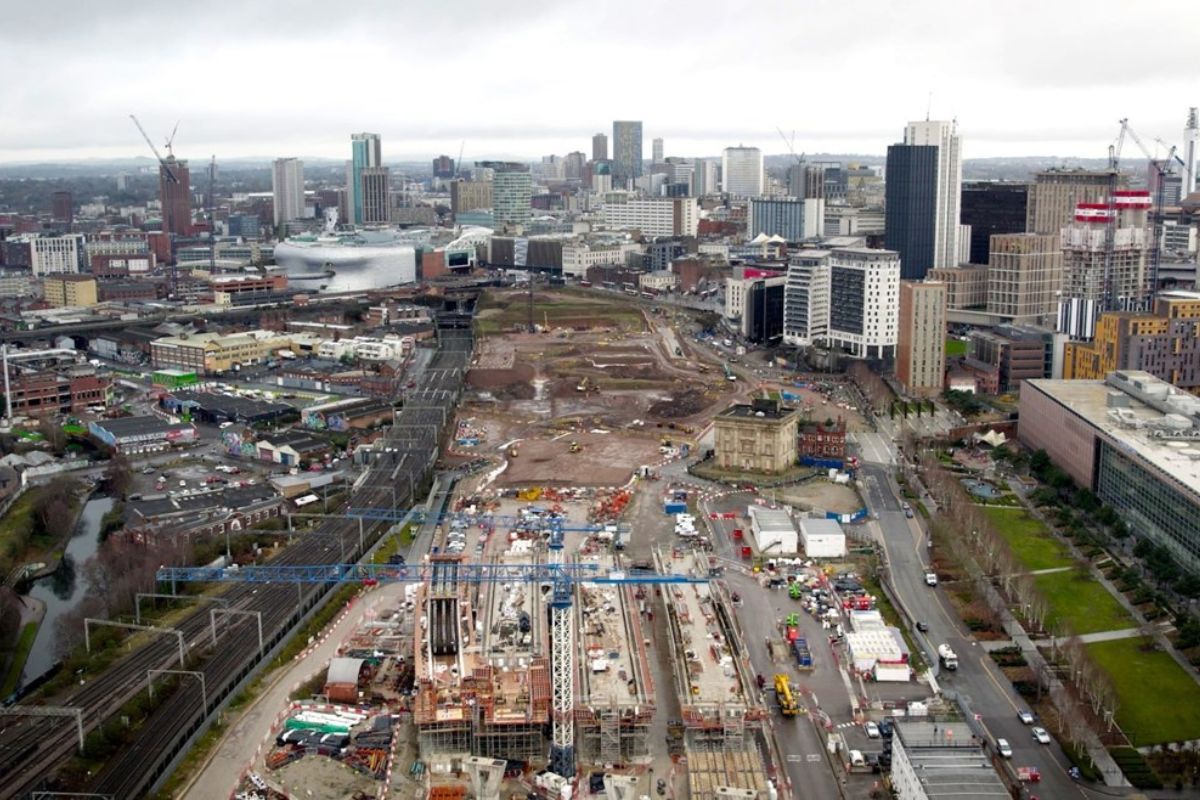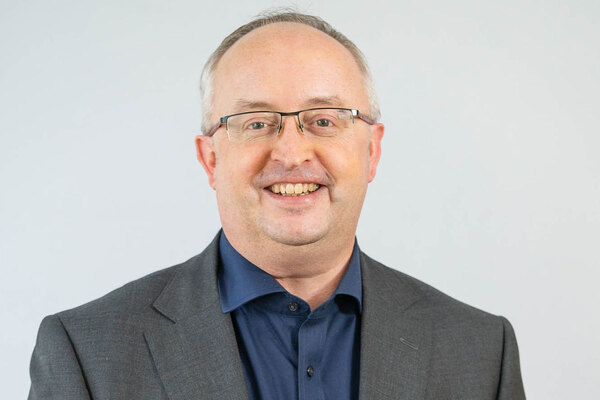New research shows HS2 will drive a £10 billion economic uplift across the West Midlands in the next 10 years
New research shows that the future arrival of HS2 in the West Midlands has increased investor confidence in the region, with data pointing to an economic uplift of £10billion over the next 10 years.
Economic analysis of the areas close to HS2’s three hubs in the West Midlands - Curzon Street Station in central Birmingham, Interchange Station in Solihull, and the Washwood Heath Depot and Network Integrated Control Centre - shows increases in regeneration and investment in the last six years.
Since Royal Assent was granted for the railway in 2017, the number of planning applications seen in a 1.5 mile radius around these three major HS2 hubs has increased by two-thirds.
Over the same timescale, the area of total planned floorspace - including commercial and residential - has increased by 200%, and the planned number of new homes has increased by almost 500% - from 10,000 to 55,000 homes.
The rate of increase in planned housing within HS2’s impact area has been 14 times greater than elsewhere in the region, with the uplift in total planned floorspace over four times greater.
Since 2017, the construction value of major new projects in HS2’s three impact zones has increased by 240% - from £4.5bn to £15.4bn. This is further evidence of increased investment and activity around the three HS2 hubs.
Outside of HS2’s impact zones the construction value of new planned projects has decreased by 16% in the same period – from £19.3bn to £16.3bn.
Within its three impact zones, it is estimated that HS2 will be responsible for the generation of 41,000 additional homes, 704,000 square metres of new floorspace and 30,835 new jobs.
Sir Jon Thompson, executive chair at HS2 Ltd said:
“This new research provides evidence that HS2’s future arrival is already driving transformational regeneration and investment in the West Midlands. It shows that investor appetite, regeneration and investment close to where we’re building our three key assets in the region has surged in the last six years.
“Driven by the promise of enhanced connectivity and heightened investor confidence, HS2’s arrival is spreading prosperity and opportunity to the communities it touches for generations to come.”
Andy Street, mayor of the West Midlands, said:
“This research demonstrates that HS2 has delivered substantial investment and development opportunities in our region in recent years.
“Whether it’s urban regeneration, improved local transport connections, increased housing provision and of course new jobs, HS2 is benefitting local people, businesses and our wider economy.
“It’s vital that local people see the tangible benefits of major schemes like this.”
Digbeth Loc. Studios is the brainchild of writer, director and Peaky Blinders creator, Steven Knight. In partnership with TIME + SPACE, a specialist asset management company who are developing the studios, he is converting 80,000 sq. ft of abandoned Victorian and industrial buildings into a cutting-edge film and TV studio and flexible workspace venue. The studios aim to generate 760 local employment opportunities, fostering the growth of the next wave of creative talent.
Steven Knight CBE said:
“As a proud Brummie, it’s brilliant to see that the tide is turning in Digbeth, with creative businesses, animators, agencies and filmmakers creating a community and drawing investment and talent out of London.
“The upcoming arrival of HS2, and the transformational connectivity it will bring has no doubt accelerated this renaissance. I can’t think of anywhere in the world I’d prefer to set up Digbeth Loc. Studios.
“I look forward to creating world class films and television here, working alongside local crews and telling our stories to the world. With plans underway for thousands of new homes, tram extensions, better leisure facilities, the best is yet to come.”
Located in the centre of Birmingham, and on the northern edge of the city’s £1.2 billon Paradise development is bringing ten new commercial buildings to the heart of the city, the 49-storey residential Octagon development features 370 Build to Rent apartments and will stand 155 metres tall, making it the city’s tallest building.
The scheme is backed by global real estate investor City Developments Limited (CDL) of Singapore and is designed by local firm Howells Architects. Developed by MEPC and delivered by contractor Midgard, Octagon is due to complete in 2025.
Ross Fittall, commercial director at MEPC - the firm leading Birmingham’s Paradise redevelopment, said:
“Construction of this key development is well underway and marks an essential part of the £1.2 billion mixed-use Paradise masterplan that includes up to ten new buildings alongside the city’s civic heart. Every day we move closer to the completion of a unique, world-class landmark for Birmingham as part of this wider investment.
“There’s no doubt that the arrival of HS2 is having a significant influence on the increase in large-scale commercial and residential development investment, bringing high quality commercial, residential and leisure facilities to the city.”
Our Cities, placemaking, living and the net zero challenge programme is supported by E.ON, Equans and Mears.



